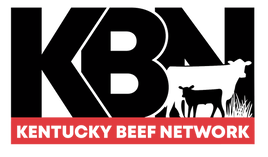Winter Tips and Reminders
Tips for the Winter Season - The winter is a time of adaptation for farmers in Kentucky. We have to change the way we manage our livestock in order to sustain the animals as well as preserve our pastures for the coming spring. As forage becomes less available throughout the months of December, January, and February, supplemental feed is the main alternative for most farmers. Some pastures become unavailable for grazing and careful thought should be put into how to efficiently maintain livestock. Here are just a few things to keep in mind as you prepare for the winter.
- Check hay quality before feeding
- Move cattle often to avoid compaction and destruction of pasture area
- Move cattle according to weather conditions to avoid heavy traffic on pastures
- If possible, feed cattle on an all-weather surface or feeding pads
- Consider feeding hay in feeders that don’t allow much waste
- Plan for any changes to your grazing system that will be made in the spring
- If you are planning on frost seeding clover, the best time to seed is February-early March
- Apply fertilizer according to soil tests
- Apply nitrogen in February to promote early grass growth if needed
Reminders for Winter Watering - Keeping watering systems from freezing during the winter months has been a challenge for as long as domesticated cattle have been raised in cold climates. Mature beef cattle can consume as much as 30+ gallons of water in a day. The amount will fluctuate depending on the weather, how much the cow is eating, distance to water, or if the cow is lactating. Hydration keeps the digestive tract functioning.
Below are ways to keep water available during the winter.
- Check waterers daily for any freezing that may occur.
- Be aware of location (if system is not in a building). Watering systems that aren’t exposed to any sunlight will stay frozen much longer than those in a sunny area. Also pay attention to elevation as a lower elevation will stay at a lower temperature in the early part of the day.
- Check your watering system for contamination on a regular basis. Food particles often contaminate water as well as fecal material/urine.
- Utilize insulation: Indoor watering sheds, insulated buckets/troughs, and insulated water tanks. Take advantage of buildings and terrain that are already available to you.
- Avoid ball waterers if you have recently weaned calves in your herd. A calf is unable to push down the ball if it freezes and will not be able to access the water.
- Keep water pipes from freezing. Make sure any exposed pipe that is capable of freezing is insulated.
- Burying water lines is the most common way farmers utilize insulation, although some use hay or fabric and surround the pipe with these materials.
- Geothermal heating of troughs can be an alternative to conventional insulation, though this can take time to set up.
- If any heating elements are being used, check to see if they are keeping water at the desired temperature. While doing this, make sure there is no electrical current in the water from a malfunctioning heating unit.
Categories:
Winter
Animal Management


